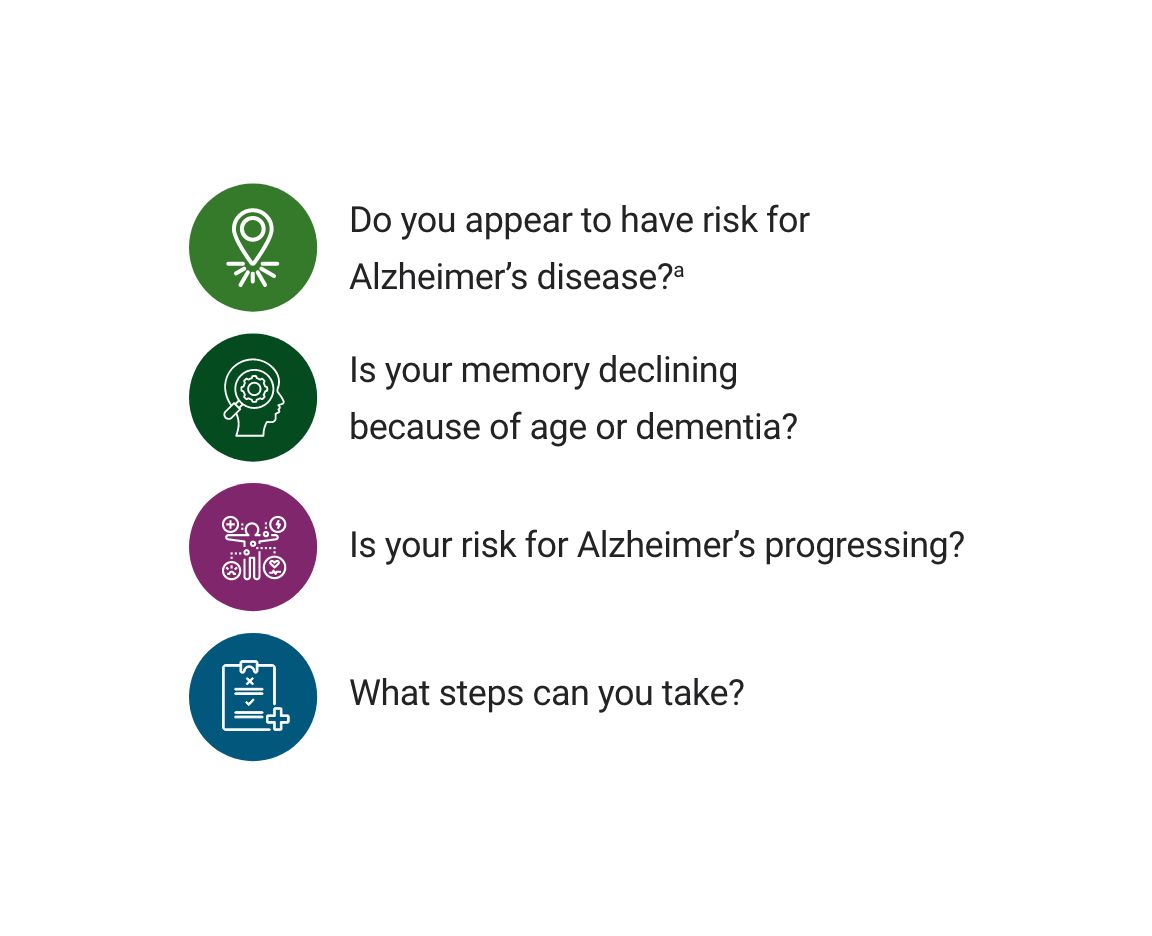There are many risk factors for Alzheimer’s disease. With a simple blood test from Quest, you and your doctor can understand if you are at risk for 1 of them, so you can take action.
Quest offers a reliable, noninvasive screening test that measures amyloid ratio, which is 1 factor in determining risk of Alzheimer’s disease. This ratio is based on 2 biomarkers that have been reported as helping to detect early signs associated with the risk of developing Alzheimer’s disease.
FEATURED TEST
AD-Detect™ Test for Alzheimer’s Disease Risk
It can help you and your doctor establish a baseline and, if used as part of an annual screen, assess change over time.







